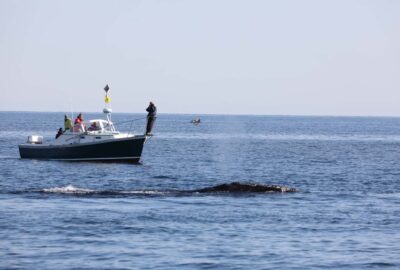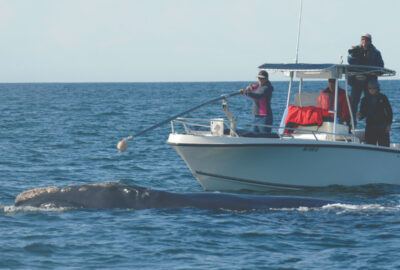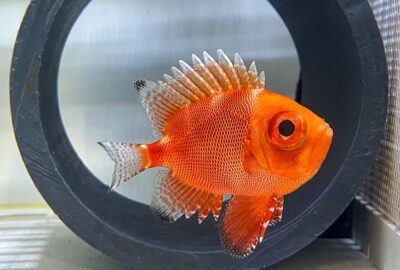We are SOLD OUT of tickets for today, Saturday July 5th.
Proceeding With Caution Into A New Field Season
By Amy Warren on Monday, August 10, 2020

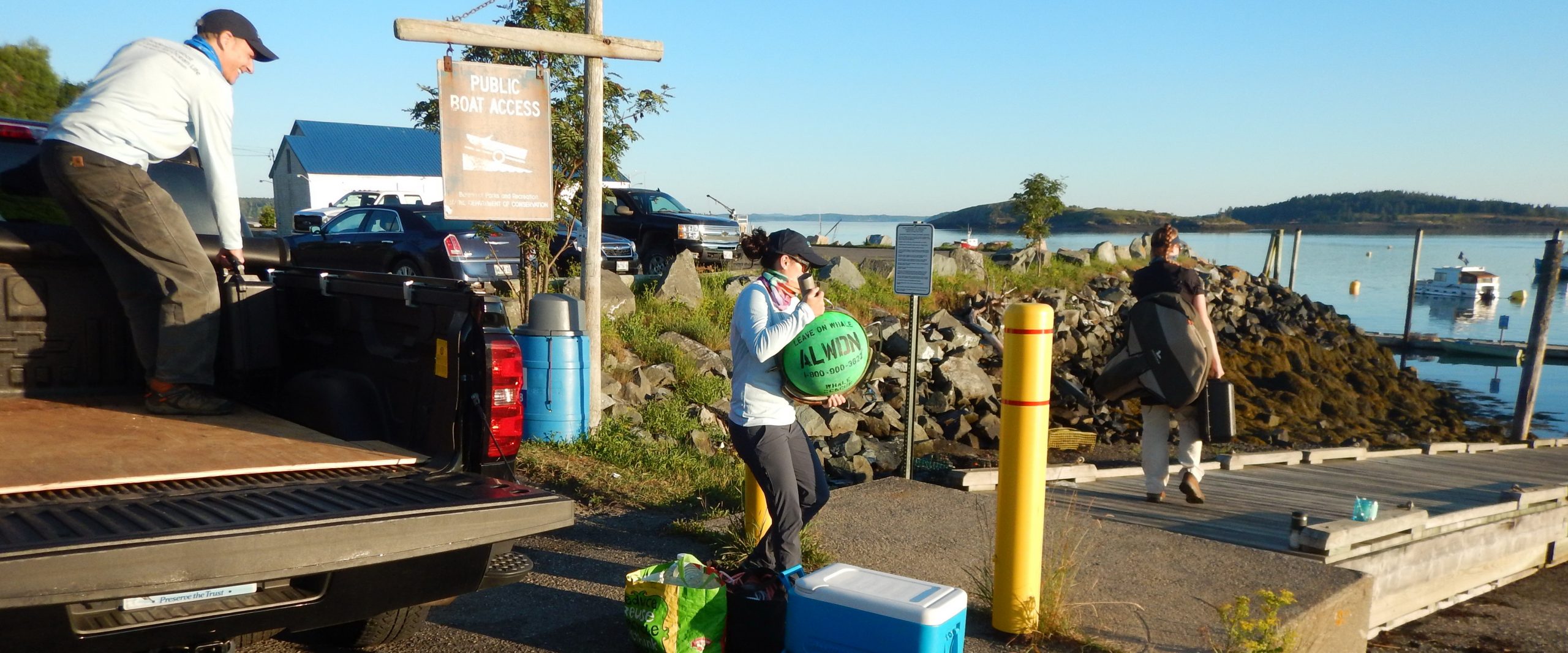
The Right Whale Research Team’s 40th season of shipboard surveys in the Bay of Fundy (BOF) officially commenced on August 1. For some it was a homecoming, but for me it’s the beginning of a whole new adventure! By way of introduction, my name is Amy Warren and I’m the newest member of the New England Aquarium’s Right Whale Team. I started at the Aquarium this past fall and have been anxiously awaiting the arrival of our field season. While I’m new to the Aquarium, I have nearly ten years of experience documenting whales on the water. I have spent summers working as crew and naturalist aboard commercial whale watching vessels and winters documenting right whales from survey planes over the Southeast U.S. calving grounds, off the coasts of South Carolina, Georgia, and Florida.
I grew up in New England, so traveling to Maine isn’t new for me. But I’d never been up to the farthest northern reaches of the U.S. Atlantic coast, and having heard lots of stories about the eclectic “Whale House” in Lubec and the 39 prior field seasons, I couldn’t wait to get started!
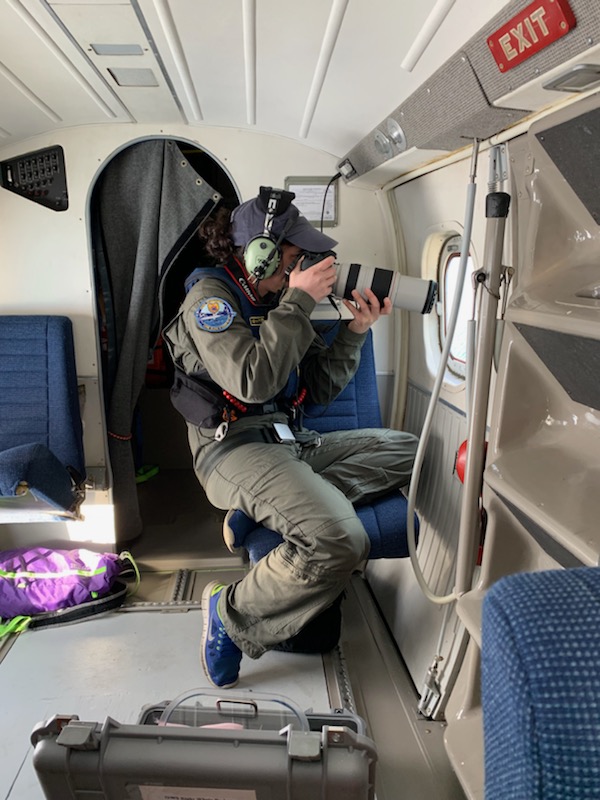
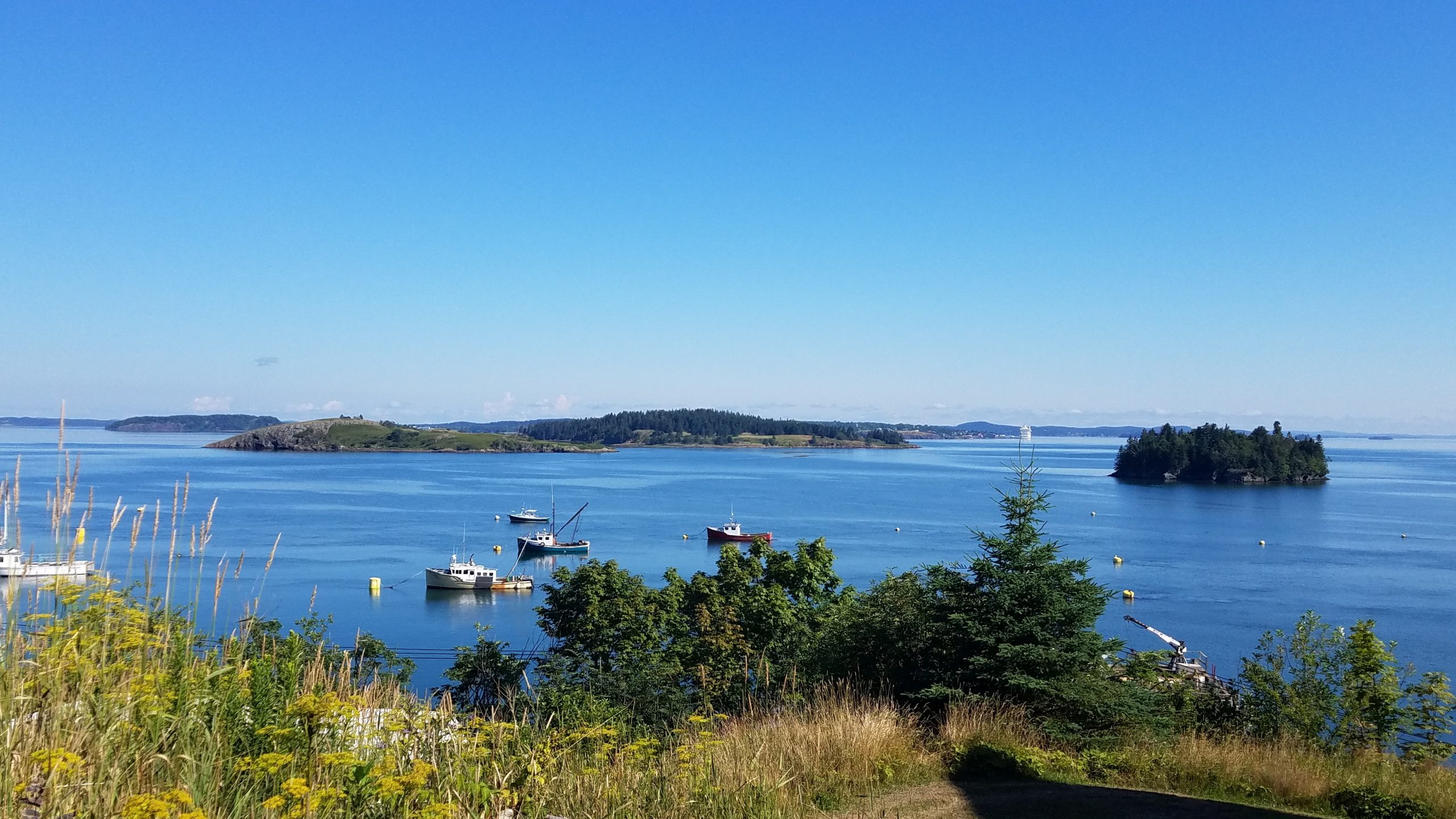
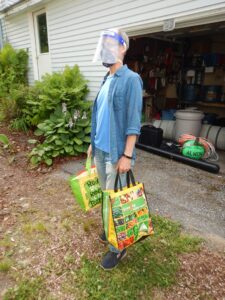
Given the many pandemic-related travel and safety issues, there were fears we would be unable to make this season happen at all. After much hard work and collaboration with many of our Aquarium colleagues, we were able to formulate a “COVID-safe” field season plan. Special thanks to our team member Marianna for being our “COVID Safety Officer” –someone get her a badge!—for ensuring our health and safety protocols leading up to and throughout the remainder of the season. Finally, after testing negative for COVID-19, I made the journey to Lubec, Maine last week!
After a few busy days spent cleaning the field station and organizing our equipment, we were ready to jump right into the surveys. I was especially excited—not only to get back out on the water—but for my first BOF trip aboard our research vessel Nereid. Our current field team (Amy Knowlton, Philip Hamilton, Marianna Hagbloom, Kelsey Howe, and me) woke with the sun early Saturday morning and hustled ourselves and lots of gear down to the public dock. As mentioned in the previous blog post, repairs to our private dock have been delayed and the Nereid is out on a mooring. Amy rowed the dinghy (dubbed Cyamid II, after the team’s original rowboat Cyamid which was used in the 80’s to get to the Nereid’s mooring, her regular home back then) to the Nereid and brought her to the public dock. After a rundown of all the safety equipment on board, and a refresher on our emergency procedures, we set out towards the Bay, into a new season with lots of hope.
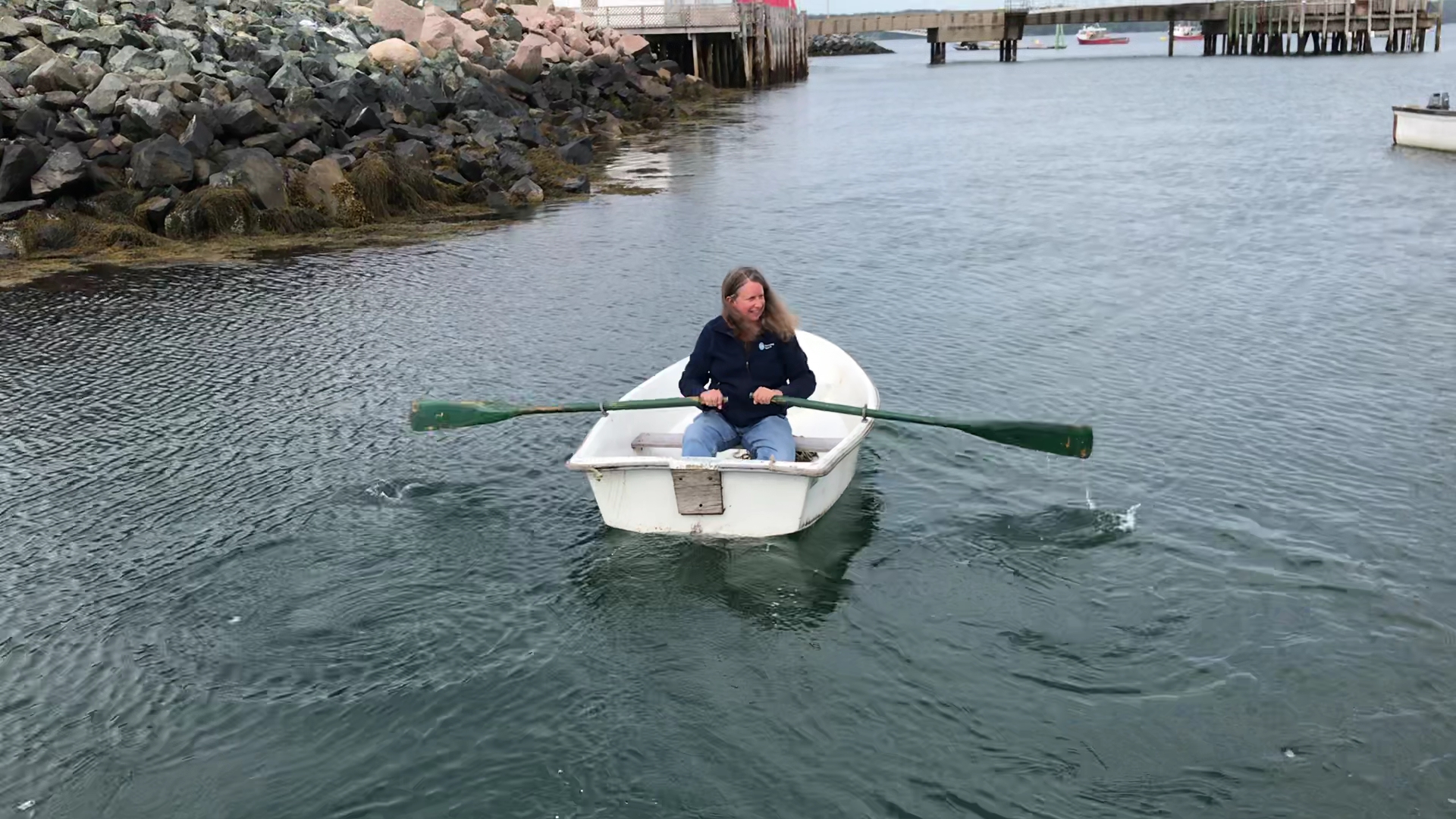
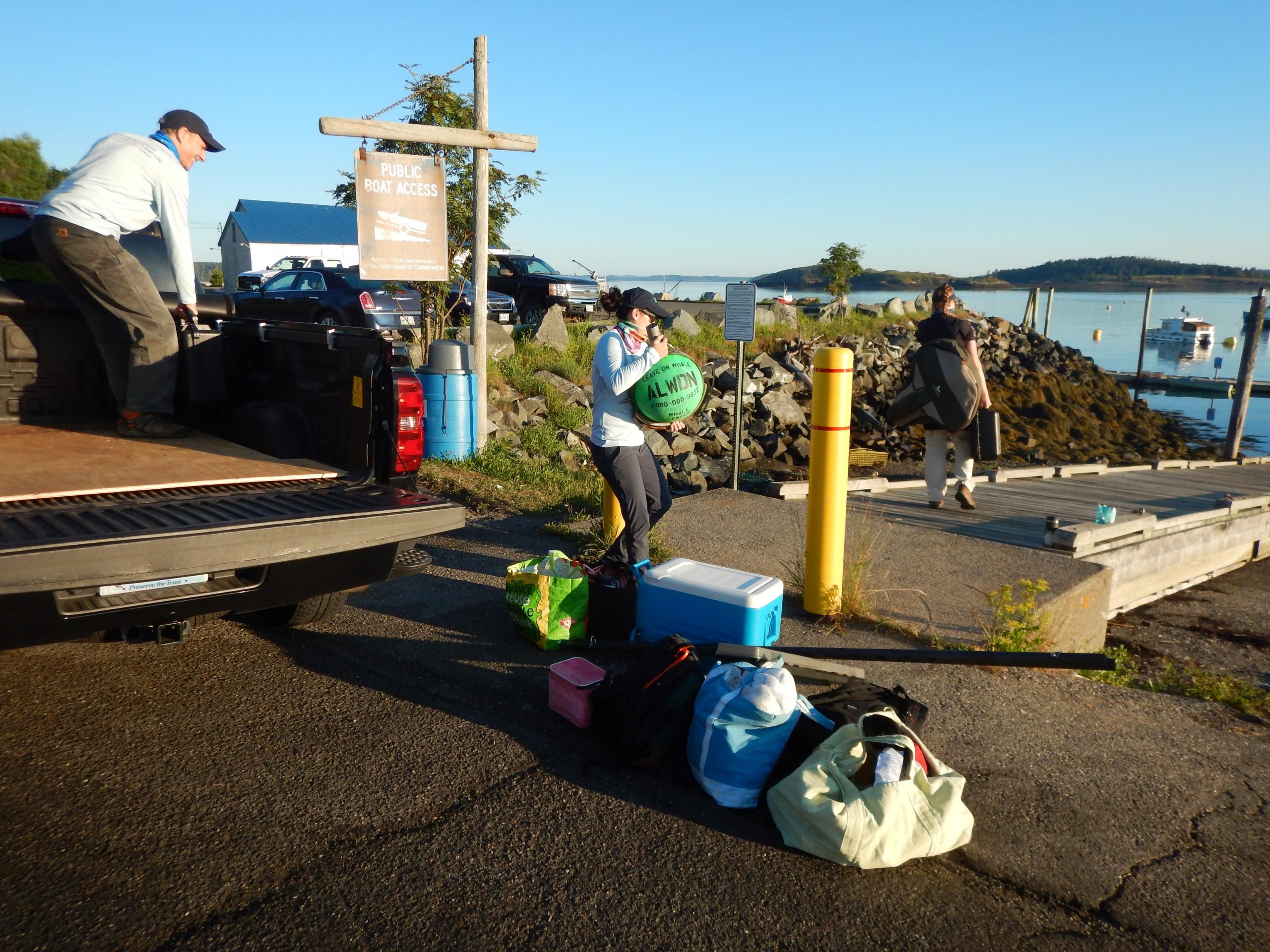
It was a busy morning with many harbor porpoise sightings, the smallest classified whale found in the Gulf of Maine, and we came across our first large whale, a humpback! Though not our target species, we couldn’t help stopping to take a few photos of our first large whale sighting of the season. All of the humpback whale photos we take are sent to the Center for Coastal Studies, who curate the Gulf of Maine Humpback Whale Catalog. This whale never fluked for us, which is unfortunate because the underside of the flukes are the quickest way to match the individual. We did photograph the dorsal fin, which had a slightly blunt tip. Our whale watch naturalist friends Danielle Dion (Quoddy Link Marine) and Joanne Jarzobski (Seasalt Charters) were able to cinch the match to a whale appropriately named “Fundy!”
As the day continued, the already nice weather only seemed to get better. You know it’s a nice day when the team’s biggest debate is whether it’s a sea state 1 or a sea state 0 on the Beaufort scale!
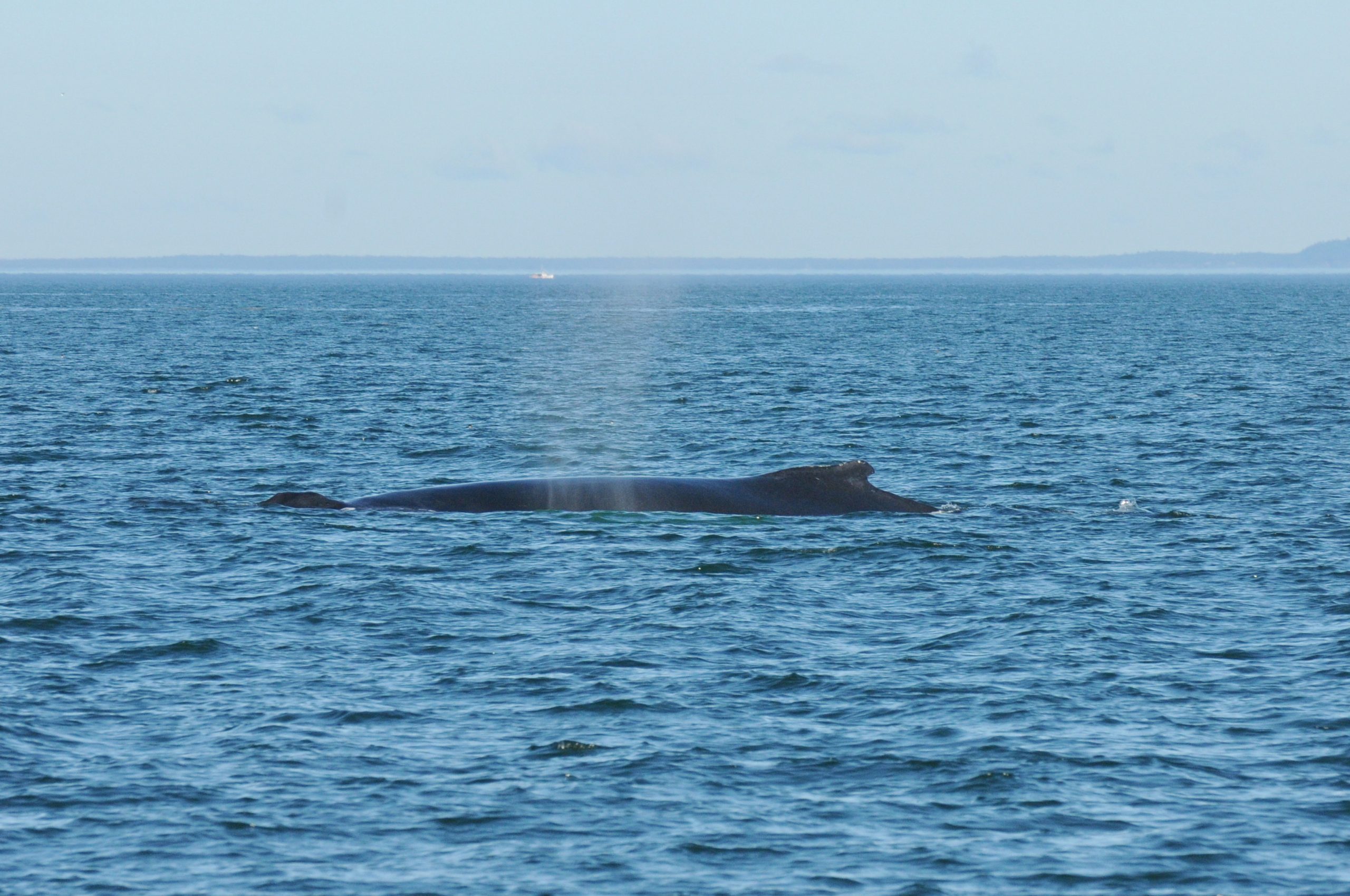
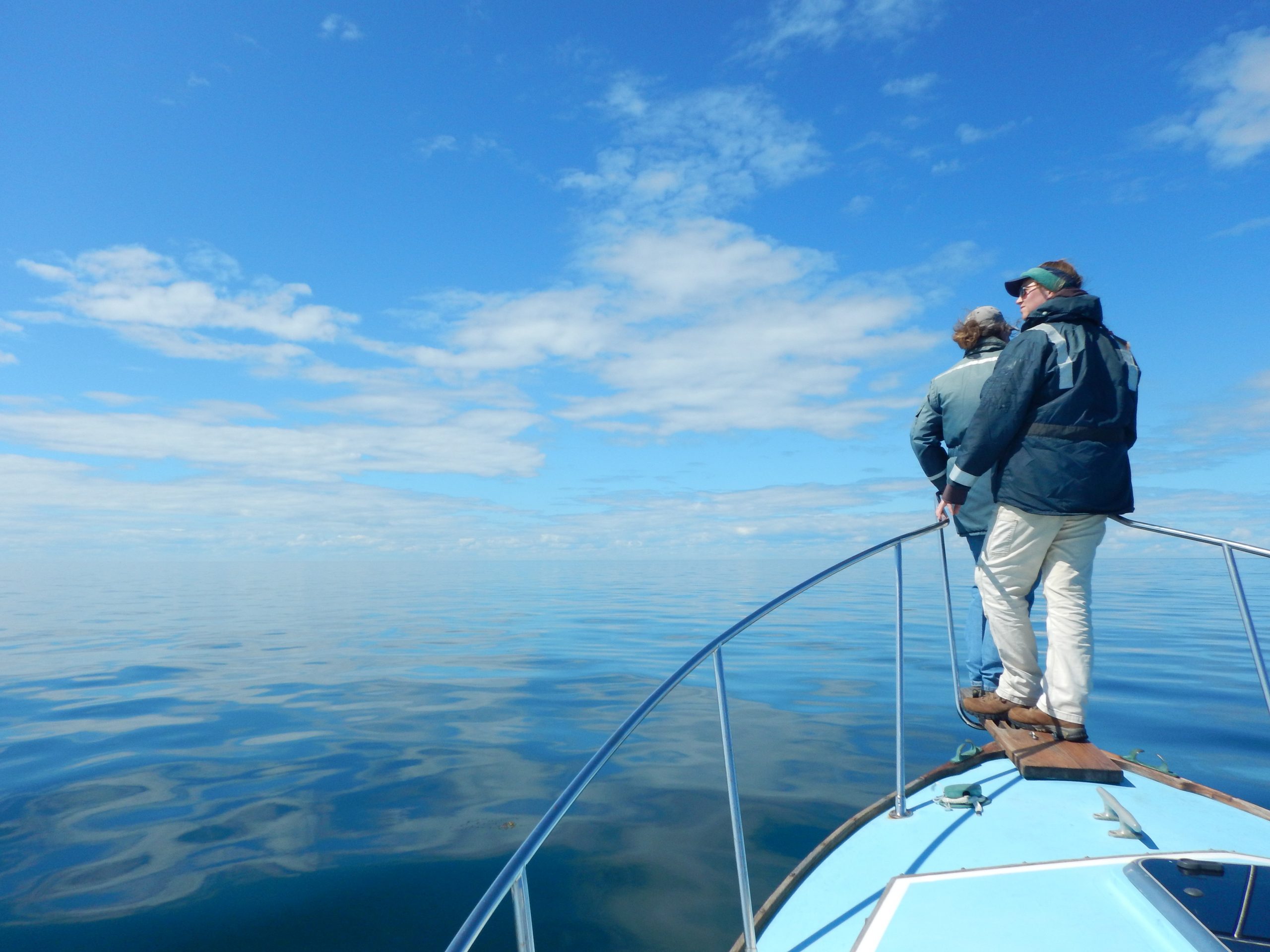
Despite not having any right whale sightings, there was plenty of life in BOF. In addition to lots of harbor porpoise throughout the day, we also saw several humpback whales, fin whales, seals, ocean sunfish, basking sharks, and lots of seabirds. I couldn’t get over the number of puffins we saw throughout the day!
Sometimes a whale’s blow can be heard from miles away, so we occasionally perform what’s called a “listening station,” where we shut down the boat’s engines and just listen quietly for ten minutes. One of our coolest sightings of the day was a basking shark that breached several times while we had the boat shut down for a listening station.
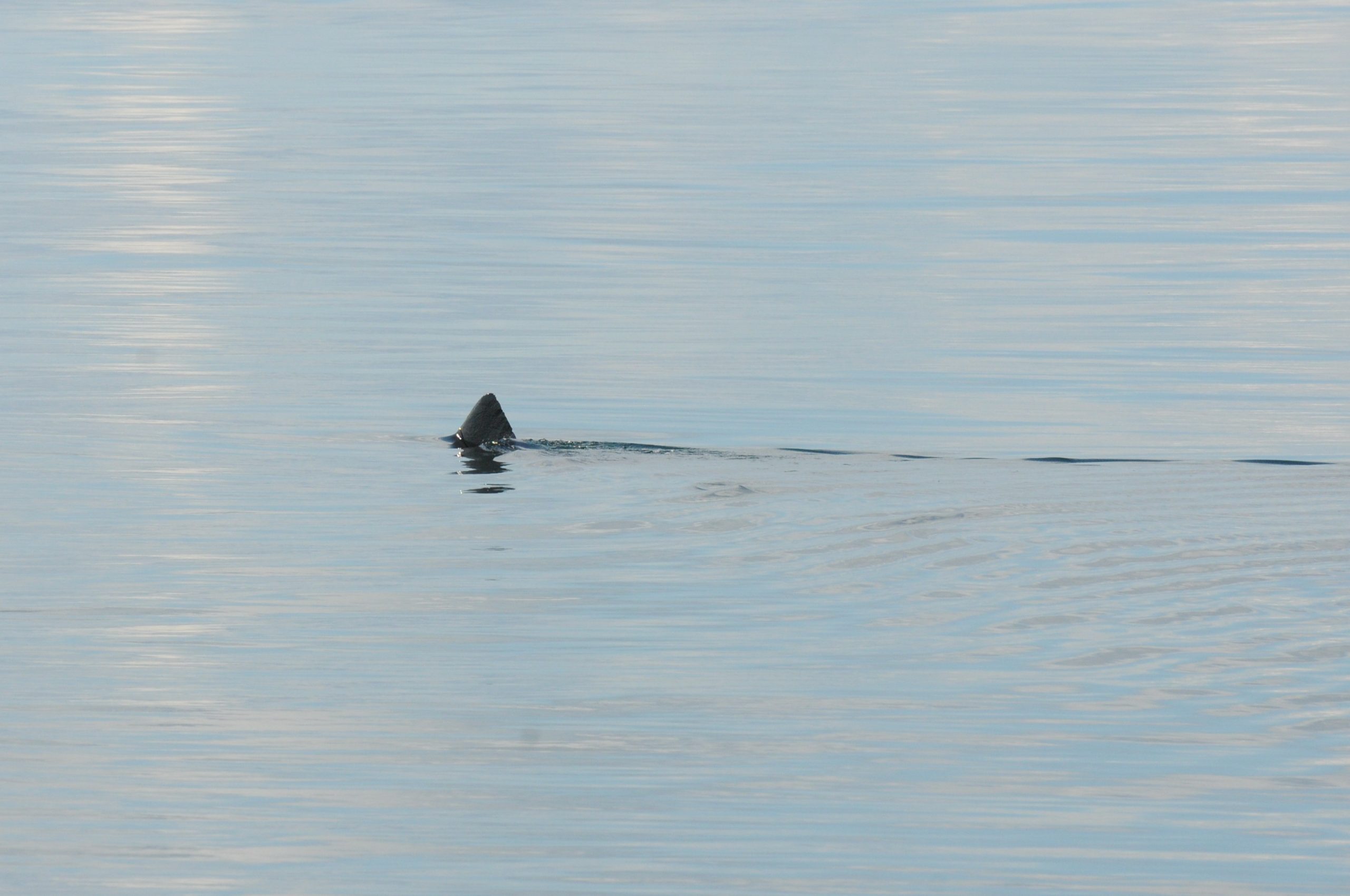
It’s hard not to overstate that while our research is important to us, a lot of careful planning was involved to make this work possible during a pandemic. We would like to thank everyone at the Aquarium who worked hard to make it possible to conduct this field season in the safest way for our team. We are hopeful it will be a successful one; stay tuned for more updates throughout the season!
This work is made possible in part by the generosity of Irving Oil, lead sponsor of the New England Aquarium’s North Atlantic Right Whale Research Program.

